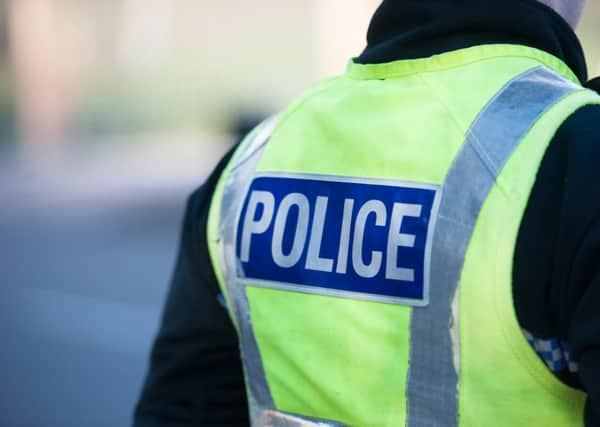Leaders: New police chief key to restoring morale


It is just two and a half years since the official launch of Scotland’s national police service, an idea that seemed to have some merits when it was being pursued by the Scottish Government.
There were clearly significant savings to be made with the creation of Police Scotland, particularly with the slimming down of headquarters functions. It was also hard to argue against then First Minister Alex Salmond’s mantra that cutting the number of forces could be justified on the basis of “bobbies before boundaries.”
Advertisement
Hide AdAdvertisement
Hide AdWhile some teething troubles were clearly to be expected, not even the harshest critics of the amalgamation of the country’s eight police forces could have predicted the troubles to befall Police Scotland. To many observers, it has appeared to lurch from one controversy to another, with its problems mounting up dramatically this year, culminating in the decision by chief constable Sir Stephen House to step down at the end of the year.
It is hard to imagine the kind of impact on officer morale of a series of political storms over armed patrols, the use of stop-and-search powers, the death of Sheku Bayoh in custody and the criticism of the force over the response to a fatal crash on the M9. But we have a much better idea now of the impact of Police Scotland’s troubles on its workforce with the results of a damning survey which found around a third of officers plan to quit their jobs within the next three years.
Almost half of the force’s officers took part in the survey, which also found that just a quarter of them felt they had the resources to do their job properly. Just nine per cent of those who responded believed that senior managers would take action over the results of the survey, which also found that 92 per cent of staff believed the new service was not interested in their wellbeing.
Also deeply worrying is the finding that only 15 per cent of those who responded to the survey - the first of the workforce since Police Scotland came into being – felt valued and recognised for what they do.
It is clear the litany of bad publicity over Police Scotland is affecting serving officers, almost a quarter of whom say they get their information about the force from the media. But underneath the shocking headline finding that one in three officers wants to quit are their reasons for wishing to do so. A lack of resources, a lack of commitment to wellbeing, health and safety concerns and the ability to achieve a work-life balance were among the most commonly cited factors. Almost half of those surveyed suggested that changes to their pensions had made them consider quitting.
With allegations over the possible unlawful spying on journalists still swirling around the force, it may be that Police Scotland’s troubles are going to get worse before they get better.
There is obviously a huge job to be done in rebuilding morale within the force and Sir Stephen’s replacement is already facing a huge mountain to climb. While the temptation may be to ensure a clean break from the past by looking outwith Scotland for his successor, it would be perhaps wise to instead look closer to home for a person who already commands the respect and trust of serving officers.
Effort needed to rein in lone wolf
A third day of bombings by Russia in Syria has heightened international tensions to new levels. The latest in a series of deadly raids has deepened a rift over exactly who Moscow is targeting and why.
Advertisement
Hide AdAdvertisement
Hide AdIt prompted the US-led coalition of countries battling Islamic State to call on Russia to cease air strikes they say are hitting rival insurgent groups and killing civilians.
It is hard to argue with their strongly worded statement that Russia’s military actions “constitute a further escalation and will only fuel more extremism and radicalisation” in Syria.
However, Russia is insisting that its jets are attacking IS forces and other “terror groups” and the Kremlin has dismissed claims that 36 civilians, including five children, have been killed in its bombing raids.
And with Russian officials declaring that the air strikes could least for another four months, a period of worrying instability appears to be in prospect.
The air campaign ordered by Moscow is highly significant as it is the first foray outside the former Soviet Union for more than three decades and it is little wonder the surprise strikes have upset the US and its allies.
Most experts believe non-IS rebel factions opposed to Syrian president Bashar al-Assad –the Kremlin’s ally – are bearing the brunt of the attacks.
There is little doubt that they have cast a dark cloud over peace talks between the French and Russian presidents in Paris.
Both Russia and American military officials have insisted they will hold talks to avoid their forces clashing in Syria.
But it is clear wide international pressure may be needed to avoid Russia acting as some kind of lone wolf.